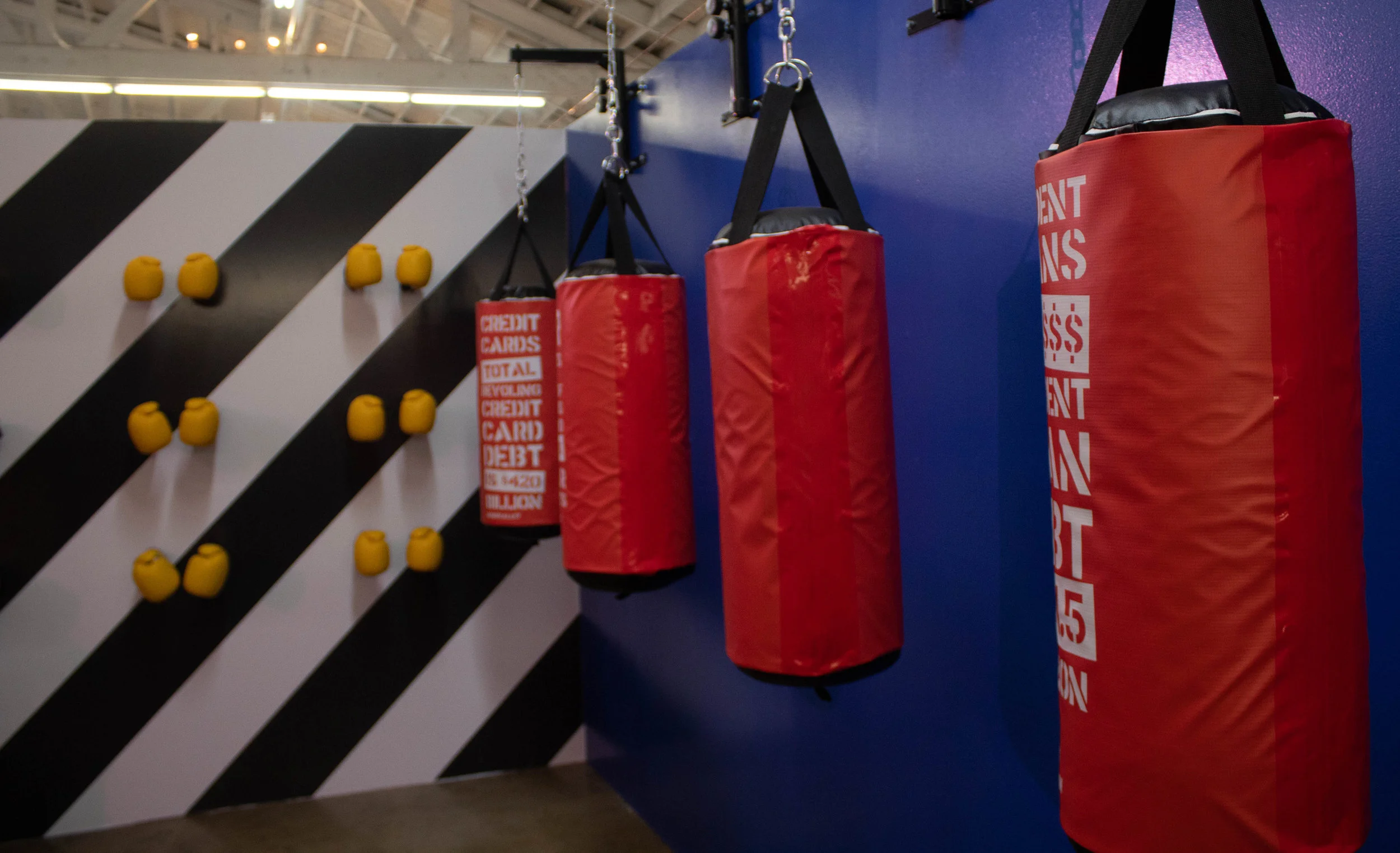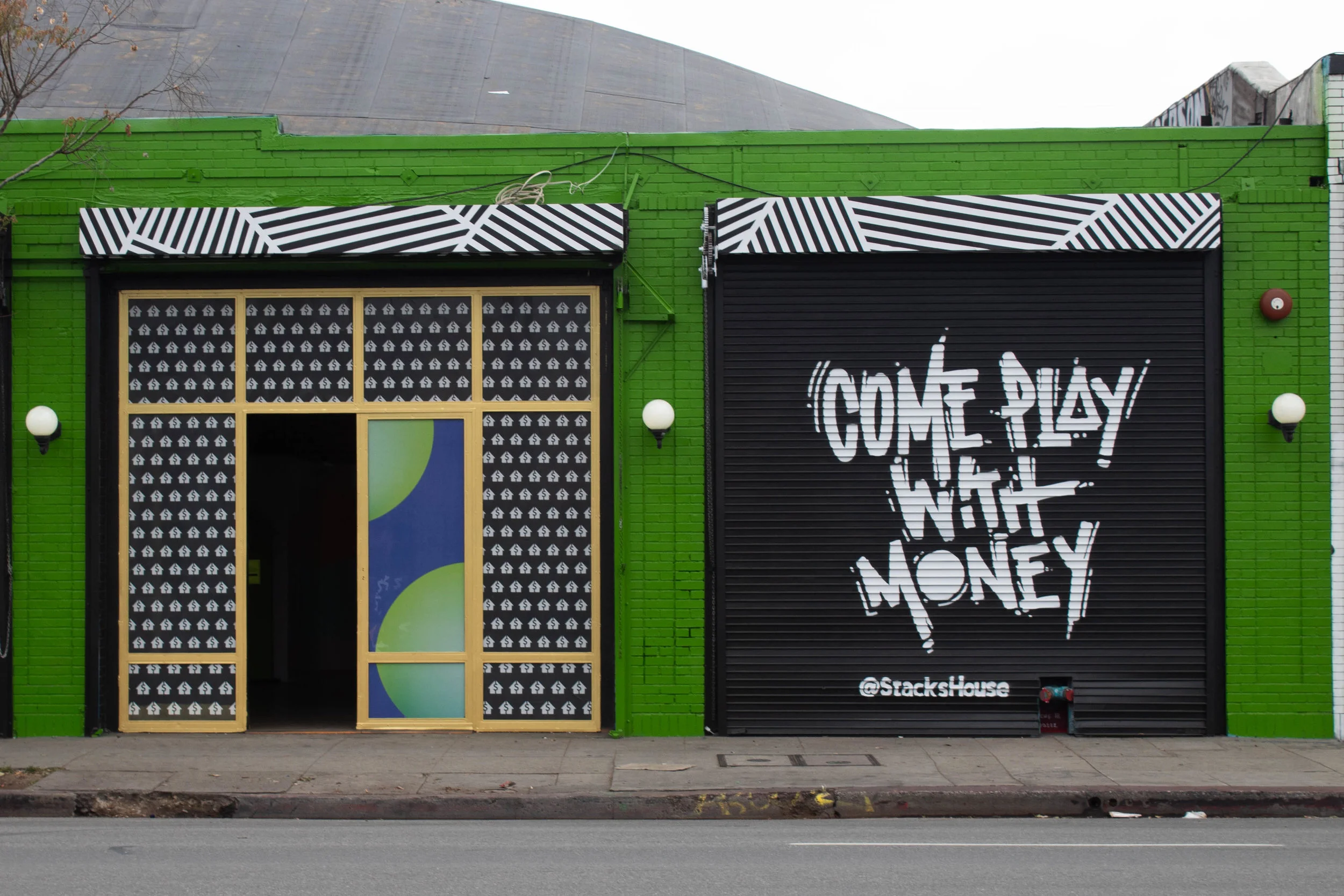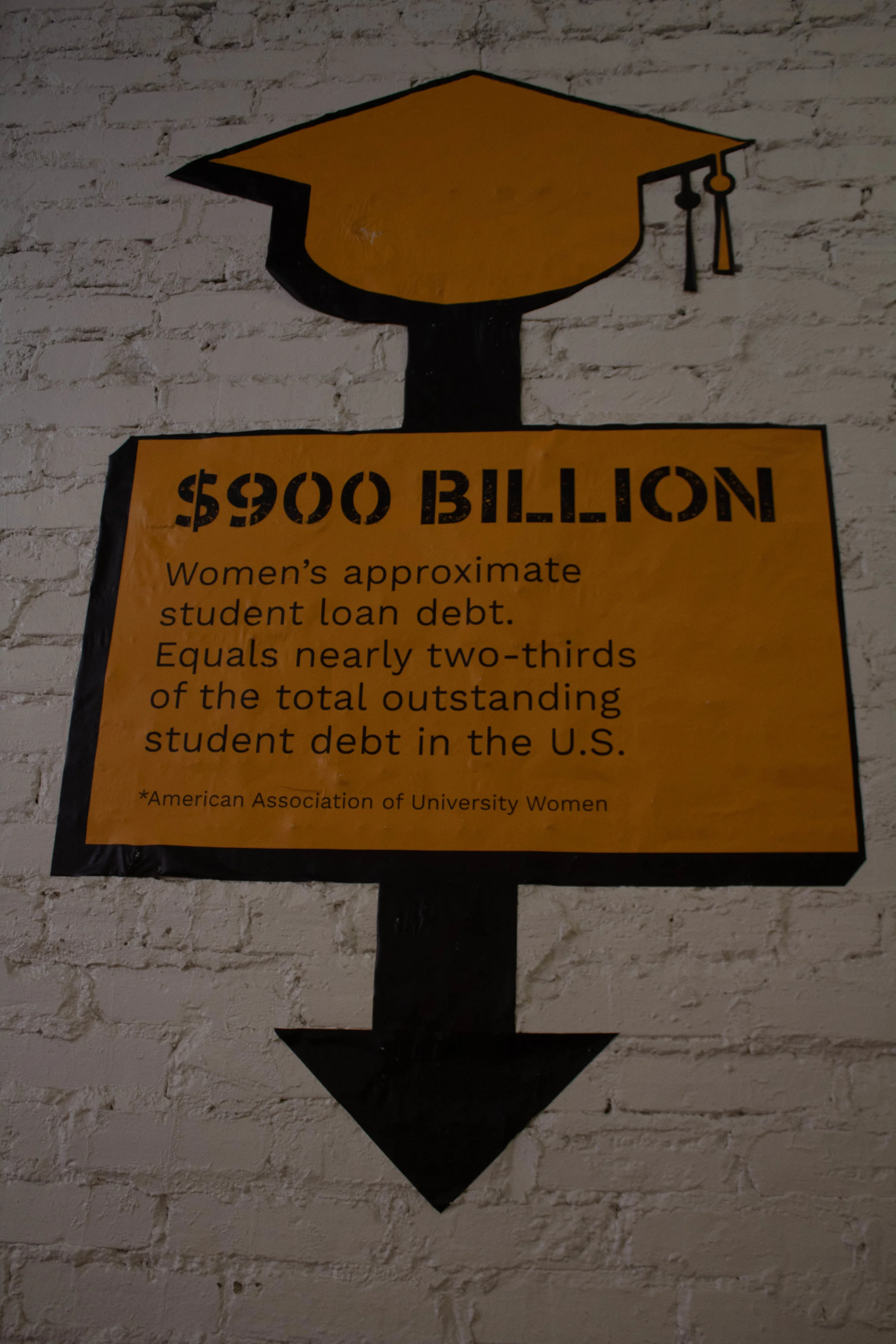Does Stacks House Stack Up?: Pop-Up Museum "Teaches" Financial Literacy
Four punching bags sway gently in a large, white-brick room. Rows of bright yellow boxing gloves adorn the adjacent wall, waiting to be put on. In the corner, a makeshift boxing ring stands, beckoning passersby to "get off the ropes" and "knock debt out."
This is not an actual training gym. It is the Debt Boxing gym – the first room in the latest pop-up museum to hit Los Angeles.
On Wednesday, April 17, Stacks House, a touring pop-up that aims to educate young women on financial literacy, opened its doors. According to their official website, Stacks House claims to be "a ground-breaking experiential pop-up with a purpose, designed to promote financial independence and help close the gaps between women and wealth in America."
Stacks House is the brainchild of financial guru, Farnoosh Torabi, and marketers, Kindra Meyer and Patience Ramsey. In an article published in Refinery29, Meyer and Ramsey both recall growing up with financial difficulty and cite their families' struggles as the motivation for creating Stacks House. Rather than addressing the political and societal structures that inform wealth inequality, however, Stacks House merely relies on trite, pop-feminist slogans to offer the illusion of empowerment.
In a press release, Meyer stated, "We want to show women that wealth-building doesn't have to be boring…We're making financial literacy simple, sexy and social."
"There's a lot of financial content out there," a spokeswoman for Stacks House said, "but it's overwhelming, it's dry, it's not written in a way that speaks to women…So we're changing the conversation."
Attendees are encouraged to walk through several money-themed rooms, such as the Debt Boxing Gym, where you can "knock out your debt aggression," and the Retirement Rodeo, where you can ride a mechanical piggy bank in order to "learn the value of compound interest." Between the two are the Money Showers, where attendees can enter stalls and "shower" themselves with money.
"It's also visually meant to evoke abundance," the spokeswoman said. "Women should want a lot of money. That's okay."
Though the exhibits are advertised as interactive learning opportunities, in reality, they're merely photo-ops for Instagram. With advice such as "buy fewer green juices" and "do your own manicures," Stacks House seems less concerned with providing actual financial information for young women and more concerned with attracting the attention of Instagram influencers.
Paradoxically, though attendees are encouraged to save money, Stacks House also wants attendees to visit their Gold Bar and drink to their personal financial victories. Even more brazenly, after telling women that one way to save money is by doing their own nails, Stacks House also offers a 10% discount for mani/pedis at a neighboring salon.
Perhaps the most comically grotesque aspect of Stacks House is its complete lack of self-awareness. Located in downtown Los Angeles, in an area that is on the cusp of gentrification, the juxtaposition between the pop-up and the surrounding area is an inadvertent representation of the widening wealth gap in America.
This is not the financial district, where gleaming buildings stretch into the sky. It is not LA Live, where elegant restaurants and hotels dot the streets. A handful of blocks north of Stacks House, the landscape transforms from breweries and art galleries into all-too-familiar sights: rows of tents where homeless Angelinos live, run-down truck repair shops, an older man pushing his ice cream cart along graffitied streets.
Stacks House regurgitates the oft-repeated lie that simply working hard and believing in yourself will stave off financial hardship. It never addresses the institutional reasons behind wealth inequality nor does it offer any legitimate financial advice. The only valuable lesson Stacks House teaches is how not to spend $38.
For students interested in increasing their financial literacy, Santa Monica College (SMC) has a wealth of resources available. In addition to several free workshops on personal finance, SMC offers several relevant classes, including Financial Planning for Students, Introduction to Investments, and Income Tax Preparation. The business department has also compiled a list of online resources, including budgeting tools, a student loan calculator, and advice on managing credit.
The final personal finance workshop of the semester will take place on Thursday, May 9 during activity hour. Students may contact Professor Jenny Resnick for more information.








